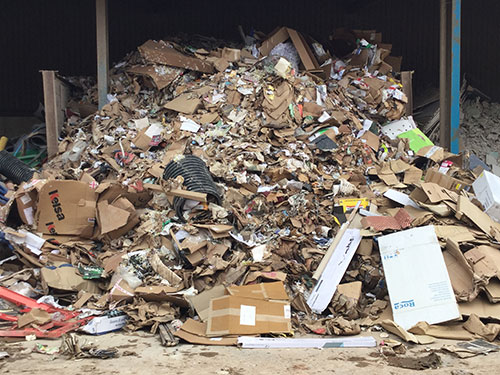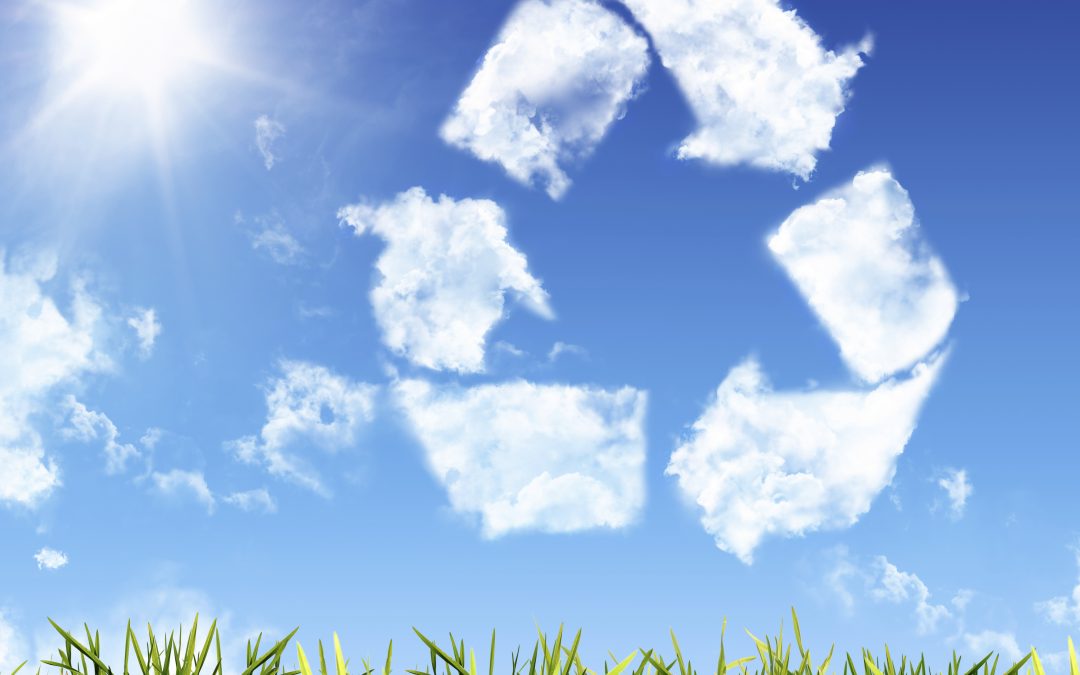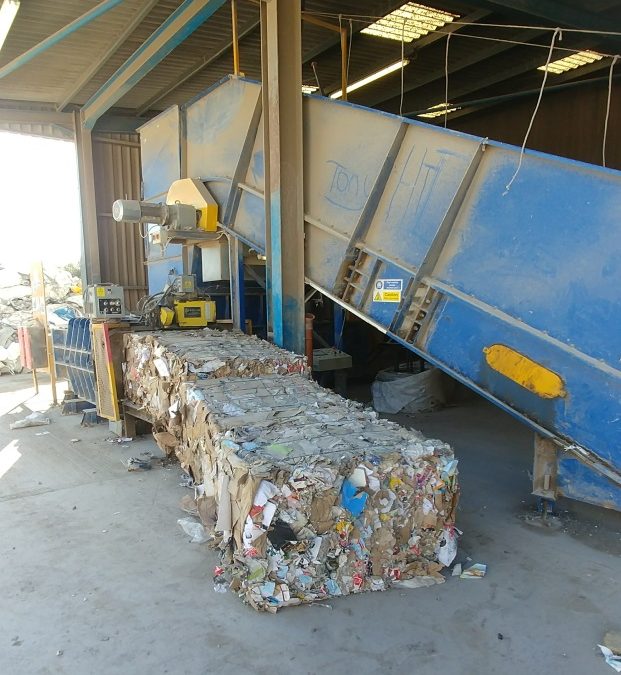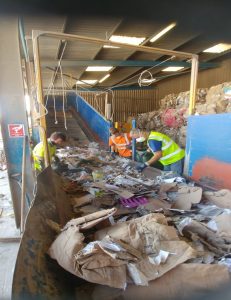
by stuarts-admin | May 29, 2018 | Recycling, waste recycling exeter
The things people wrongly assume they can recycle
As a nation, we are now more aware about the damage that we are causing to our planet through the use and disposal of plastic waste.
We are all encouraged to recycle as much as possible but we are still increasingly confused about the types of things that can be recycled. Especially when it comes to plastics.
Here at EMS we want to make things as clear as possible for our customers in Exeter and surrounding areas.
Confusion surrounding plastic recycling
A recent poll published by the Guardian newspaper unearthed just how confused us Britons are about plastic recycling and recycling in general.
The poll found that most of us believe that we can recycle plastics, such as plastic soap dispenser tops, and other items such as used kitchen roll and even wrapping paper. When in fact, none of these things can be recycled in our general household waste bins!
Although eight out of 10 of us now believe that recycling makes a huge difference to the environment, we are still confused about what we can and cannot recycle.
This is simply due to a lack of misunderstanding and misinformation. Ultimately, what this results in is more harm to our planet.
When it comes to recycling on a larger scale we can make things simple for you.
We’ve made a list to help clarify things.
When hiring a skip from EMS you are also hiring our extensive knowledge and expertise.
If there’s something not listed that you’d like to include in your skip please give one of our experts a call. We’re always available to help.
What can be recycled?
Cardboard recycling – Egg boxes, cereal boxes, toilet roll tubes etc
Glass recycling –glass bottles, jars, Windows, Windscreens
Plastic recycling – HDPE(drainage piping/road barriers), LDPE, Farm Plastic, UPVC Window Frames, PET Bags etc
Wood – Palets, off cuts and all general wood waste
Metal – Ferrous and non ferrous
Garden and Green waste – Grass cuttings, leaves and weeds, Christmas trees etc
Inert Waste – Soil and stone
What needs to be done?
Education and information are key, as well as clear and informative packaging.
All plastic packaging should clearly state if it can be recycled, and if not, where it is best placed after use.
Local councils can also play a huge role in alerting people to the relevant information about what items can be recycled, and where they can be recycled.
What is truly shocking is that 79 percent of all plastic waste is still with us, as we are unable to recycle and reuse this type of plastic.
The very clear message here is that so much more needs to be done to ensure that, eventually, we are able to recycle all plastic waste.
To learn more about our designated plastic waste collection and all other recycling services, then please do browse our website or call the office for more information.

by stuarts-admin | Nov 21, 2017 | Recycling
Recycling – where the waste goes
At EMS, we understand the growing importance of effective recycling schemes, so we do our best to be a part of the solution, rather than the problem.
Whenever we work with clients, we try to ensure that all recyclables and non-recyclables are separated at source. In turn, this allows us to maintain the highest quality of recycled products.
Doing our bit for the environment
Being based in such a naturally spectacular part of the UK, we know first-hand the dangers that a lack of recycling can do to the environment.
We aim to do our bit to maintain the stunning Devon coastal culture that we all know and love. That’s why we’ve gone to great lengths to ensure our waste recycling process is as environmentally friendly as it possibly can be, and we keep Devon’s impact on the environment to a minimum.
This means employing highly trained staff who understand the ins and outs of effective recycling processes, as well as using modern equipment and machinery.
This allows us to deal with waste removal services for small domestic dwellings, as well as larger commercial purposes. We now offer waste management programmes, scrap metal recycling and skip hire, and here are some of what we recycle:
• Wood
• Plastic
• Metal – both ferrous and non-ferrous
• Paper
• Cardboard
• Glass
• Garden and green waste
• Inert waste
What happens to the non-recyclable waste we collect?
Even non-recyclable waste can be put to good use, instead of clogging up local landfills and harming the environment. That’s why the majority of our non-recyclable waste goes to MVV in Plymouth.
They have an EFW CHP facility in Devonport which aims to create sustainable benefits for the local community, such as:
• Their safe and reliable technology allows us here at Bay Skips to avoid our waste going to landfill
• Provides more affordable heat and electricity for homes and businesses across Devon
• By using waste to make energy, it stops the need for more fossil fuels
• Their services reduce the levels of Co2 emitted in Devon every year by 72,000 tonnes. This saves more than 700 hectares of forest, roughly the size of 1,000 football fields.
If you have any waste removal needs and would like to join us in becoming a part of the solution to environmental damage, then get in contact today.
Our friendly staff are on hand to help you find a solution that suits both you and the beautiful Devon countryside.
Some Interesting Recycling Facts!
Did you know?
- 1 recycled tin can would save enough energy to power a television for 3 hours.
- 1 recycled glass bottle would save enough energy to power a computer for 25 minutes.
- 1 recycled plastic bottle would save enough energy to power a 60-watt light bulb for 3 hours.
- 70% less energy is required to recycle paper compared with making it from raw materials.
- Up to 60% of the rubbish that ends up in the dustbin could be recycled.
- On average, 16% of the money you spend on a product pays for the packaging, which ultimately ends up as rubbish.
- As much as 50% of waste in the average dustbin could be composted.

by stuarts-admin | Oct 31, 2017 | Recycling, Skip Hire exeter
Recycled paper – what on Earth happens to it?
In this day and age, we should all understand the importance of recycled paper and its role in helping to combat deforestation.
However, once you place your waste paper in the recycling bin, you must be left wondering, “what on Earth happens to it now?”
Well, here’s a rundown of the recycling process:
The process of recycling paper
Once you place your waste paper in the recycling bin, it is collected by a waste management company. It is then taken to a waste recycling factory where it is separated based on the grade of the paper.
To remove anything like ink and glue, the paper is all bundled together and washed with soapy water. It is then placed in a large container where, when mixed with water, it becomes a sort of paste.
Different products are then added to the mix to turn it back into paper or create cardboard.
The slurry that remains after is rolled into long sheets before being left to dry. Afterwards, it is then cut into its necessary shape and repackaged, ready to be sold once again.
What is our role here at EMS Waste Services?
We deal with a lot of waste recycling services, and recycling paper is a core part of our company.
We have partnered with Cycle Link International to procure a lot of cardboard, and we do our best to recycle as much as possible.

Once it is all appropriately separated,
we send the cardboard up to our depot in Exeter.
Here it can be properly processed and baled.
We tend to find that a lot of this recycled cardboard and paper is shipped over to China, where they are in heavy need of sustainable sources of such materials.
Years of heavy demand in China, coupled with a lack of sustainability programmes, has left China with a lack of sustainable wood pulp sources with which to make their own paper.
We understand the importance of recycling and reusing paper and cardboard in struggling countries like China, and we are proud to be a part of the solution.
If you’d like to find out more about the services we have available, then please contact us on 01395 233748.





Recent Comments